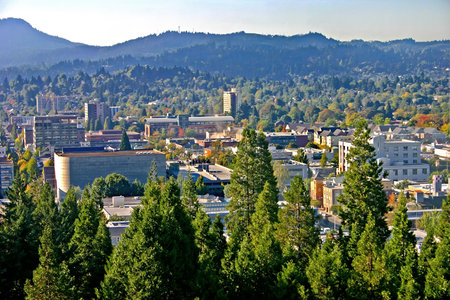
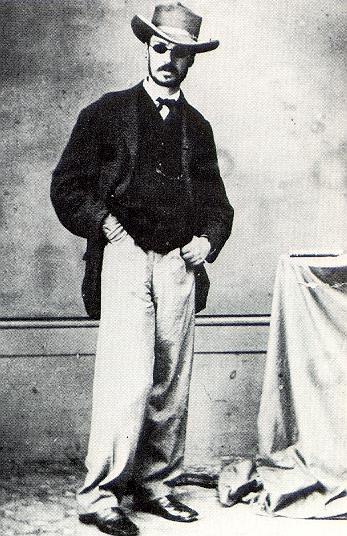
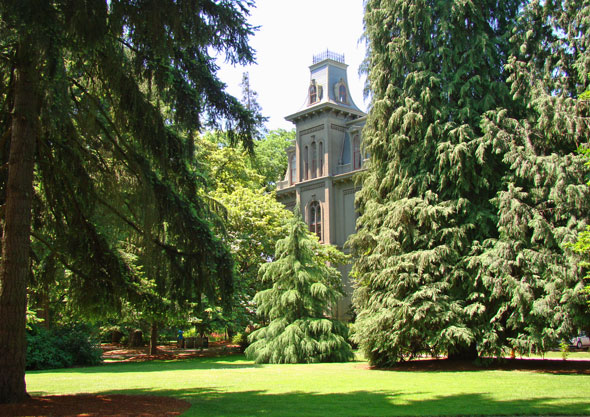



Overview & Schedule | Seminars | Keynotes | Papers | Readings | Registration
The Summer Institute in American Philosophy is designed for faculty members and advanced graduate and postdoctoral students in philosophy and related disciplines interested in research and study in the American philosophic tradition. The program is centered around three discussion-intensive plenary seminars concerning central problem areas, figures, and themes in the tradition. Each of these features a panel of distinguished experts and consists of multiple sessions on subsequent days. A pair of keynote addresses by Joseph Margolis will enrich our discussions. There will also be a good number of more traditional conference-style sessions which will include paper presentations and works-in-progress meetings.
Housing is available on campus in one of the UO residence halls and nearby at one of local inns or hotels. The program includes time away from sessions to visit the Oregon coast, hike to hot springs in the nearby Cascade mountains, or to enjoy Willamette Valley wine tasting.
A finalized conference schedule for all conference proceedings is now available. Note that the schedule will be updated as we fill in the names of session chairs (volunteers now being accepted) but we do not expect to make any other changes to scheduled sessions.
This panel will take up central issues in contemporary philosophy of social science, including the philosophy of history, the philosophy of anthropology, and broader questions in social theory. The purpose will be (at least) twofold. One aim will be to locate potential areas of pragmatist contribution to contemporary debates. What can John Dewey, W.E.B. DuBois, Richard Rorty, W.V.O. Quine, Jane Addams and C.S. Peirce, contribute to our understanding of the social sciences? A further aim wil be to refract questions of social science back into philosophy. How does engaging pragmatism with the social sciences transform the pragmatist tradition? What must pragmatism become if it is to become (more) relevant to contemporary work in the social sciences?
This seminar will be led by Paul Taylor (Penn State University, Philosophy), Paul Roth (University of California, Santa Cruz, Philosophy), Alison Wylie (University of Washington, Philosophy), and Jerry Rosiek (University of Oregon, Education).
An advanced reading list for this seminar is now available.
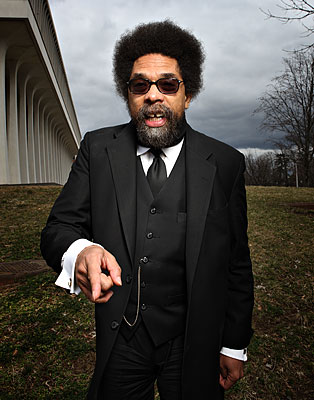 Cornel West's prophetic pragmatism--an intellectually strategic fusion of African American culture, American pragmatism, Christian theology, and Marxism--stands as one of the strongest and most influential expressions of contemporary pragmatism. Demanding that philosophy take the Black experience seriously, West has written extensively on how to make the African American experience intelligible in the hope of not only improving conditions for African Americans but the American democratic process as a whole. From early texts such as The American Evasion of Philosophy up to the more recent Democracy Matters, West calls on our nation to resist its capitalist and racially compromised imperial desires and instead promote a progressive democracy that acknowledges the dignity of every human person. To understand dignity, one must come to experience the tragicomic sense of life held by those who suffer oppression, those who constitute what West calls "the night side of America." This will keep the American experiment honest about its claims of freedom.
Cornel West's prophetic pragmatism--an intellectually strategic fusion of African American culture, American pragmatism, Christian theology, and Marxism--stands as one of the strongest and most influential expressions of contemporary pragmatism. Demanding that philosophy take the Black experience seriously, West has written extensively on how to make the African American experience intelligible in the hope of not only improving conditions for African Americans but the American democratic process as a whole. From early texts such as The American Evasion of Philosophy up to the more recent Democracy Matters, West calls on our nation to resist its capitalist and racially compromised imperial desires and instead promote a progressive democracy that acknowledges the dignity of every human person. To understand dignity, one must come to experience the tragicomic sense of life held by those who suffer oppression, those who constitute what West calls "the night side of America." This will keep the American experiment honest about its claims of freedom.
This seminar will be led by Brad Stone (Loyola Marymount University, Philosophy) and Judith Green (Fordham University).
An advanced reading list for this seminar is available now.
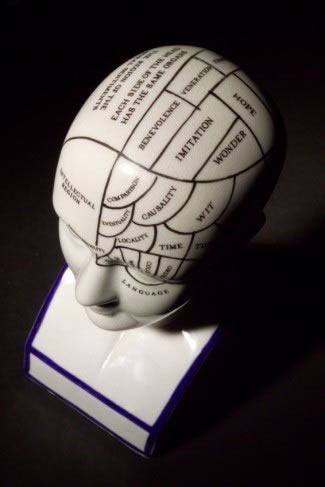 What can pragmatism contribute to contemporary work in ethics and meta-ethics? How can a naturalistic and pragmatistic philosophical perspective informed by the work of John Dewey and William James make productive use of current neuroscience research in order to enrich our understanding of the ethical life? This seminar will work at the intersection of philosophical ethics and contemporary cognitive science in order to address these and other questions..
What can pragmatism contribute to contemporary work in ethics and meta-ethics? How can a naturalistic and pragmatistic philosophical perspective informed by the work of John Dewey and William James make productive use of current neuroscience research in order to enrich our understanding of the ethical life? This seminar will work at the intersection of philosophical ethics and contemporary cognitive science in order to address these and other questions..
This seminar will be led by Mark Johnson (University of Oregon, Philosophy), Jay Schulkin (Georgetown University, Department of Neuroscience, Center for Brain Basis of Cognition) and Gregory Fernando Pappas (Texas A&M, Philosophy).
An advanced reading list for this seminar is available now.
We invite you to look through a window into Dewey's philosophical idea of heightened "transformational experiences." Our end-in-view is that this experience will give a deeper understanding of what Dewey and his team of teachers attempted at the Dewey School in their cooking classes. Participants will not only learn about cooking, but also will leave with a tangible awareness of the meaning of food as it goes from one condition to another through our
influence. And, as the food is transformed, so shall we also be changed.
 This will be an all-day event taking place on Monday July 11th, concluding with a shared meal that we have prepared together. Cooking will be interspersed with discussions of Dewey's pedagogy, our own experiences of food, our goals in and out of the kitchen, demonstration of specific cooking techniques, and the implications of what we are doing to broader cultural meanings. Our hope is that this seminar will be a social, experimental, and tactile experience of the human condition that is focused in the arena of a kitchen. Above all, our hope is that it will be not only educational and enjoyable, but also one that we can look back on and call, "an experience."
This will be an all-day event taking place on Monday July 11th, concluding with a shared meal that we have prepared together. Cooking will be interspersed with discussions of Dewey's pedagogy, our own experiences of food, our goals in and out of the kitchen, demonstration of specific cooking techniques, and the implications of what we are doing to broader cultural meanings. Our hope is that this seminar will be a social, experimental, and tactile experience of the human condition that is focused in the arena of a kitchen. Above all, our hope is that it will be not only educational and enjoyable, but also one that we can look back on and call, "an experience."
This seminar will be led by Cynthia Belliveau (University of Vermont) and Glenn Kuehn (University of Wisconsin-Marshfield/Wood County). Advanced registration is required (use the main SIAP registration form below) and the seminar will be limited to 20 participants.
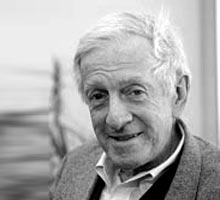 Joseph Margolis is the Laura H. Carnell Professor of Philosophy at Temple University. The author of a number of books contributing to nearly every major field of philosophy, by all accounts he has long been one of the leading philosophical voices on American Pragmatism. His books include Pragmatism without Foundations, Life without Principles, and Selves and Other Texts. Margolis has also contributed widely to the fields of aesthetics, ethics, the philosophy of history and historiography, and the philosophy of language. His recent book The Arts and the Definition of the Human is the most recent in a long line of contributions to a philosophical aesthetics that, in good pragmatist fashion, ranges widely over issues central to art, language, morality, and selfhood.
Joseph Margolis is the Laura H. Carnell Professor of Philosophy at Temple University. The author of a number of books contributing to nearly every major field of philosophy, by all accounts he has long been one of the leading philosophical voices on American Pragmatism. His books include Pragmatism without Foundations, Life without Principles, and Selves and Other Texts. Margolis has also contributed widely to the fields of aesthetics, ethics, the philosophy of history and historiography, and the philosophy of language. His recent book The Arts and the Definition of the Human is the most recent in a long line of contributions to a philosophical aesthetics that, in good pragmatist fashion, ranges widely over issues central to art, language, morality, and selfhood.
Margolis' recent trilogy of books on contemporary American philosophy places pragmatism in productive conversation with leading trends and figures in both Analytic and Continental philosophy in order to describe the distinctive philosophical requirements that contemporary pragmatism must meet and also why pragmatism is uniquely positioned to rise to these requirements. These three books (Reinventing Pragmatism, The Unraveling of Scientism, and Pragmatism's Advantage) together form the best recent synopsis, for pragmatist purposes, of the contemporary philosophical scene, with all the strange twists of fate and conceptual coups one would hope for from such an effort.
The title of Prof. Margolis' two-part talk will be: "Pragmatism's Future: A Touch of Prophecy." The talks will be given on the evening of Monday July 11th and the morning of Thursday July 14th.
There will be a number of presentations on various aspects of American Philosophy at this year's SIAP.
A complete schedule is available near the top of the page. Presentation formats include:
* Traditional Papers: Papers in all areas of American philosophy are welcome, but we will particularly favor papers whose topics are related to the themes of the plenary seminars, including Pragmatist Social Science, Pragmatist Ethics, and the work of Cornel West.
* Books-In-Progress Submissions: Those working on book manuscripts in some area of research pertinent to American philosophy are invited to discuss their idea with seminar participants. This includes fresh ideas for books just underway as well as boloks nearing completion, but does not extend to author-critics sessions on recently-published books.
* Dissertations-In-Progress: Graduate students preparing dissertation proposals, in the dissertation-writing phase, or approaching their dissertation defense are invited to present their work at a special dissertations-in-progress session. This is a regular tradition at SIAP and one of the most exciting venues to see new work that is being developed in American Philosophy at graduate programs across the country.
* Experiments-In-Progress: This year we are particularly eager to invite presentations on projects, collaborations, group work, public philosophy forays, field philosophy work, and other philosophical experiments for the purposes of discussion at SIAP. Some possible examples: Michael Eldridge's 2009 group discussion of Obama's Pragmatism, a presentation on some in-progress interdisciplinary research collaboration including reflections on what is going right in the project and what unexpected blockages have come up, a roundtable presentation concerning the development of open access scholarship in American philosophy, discussions oriented toward the design of advanced or introductory courses in pragmatism using online resources and collaborative assignment. These sessions will be limited in number and are intended to provide opportunities for innovative forms of work, thought, and scholarship in the American tradition.
REGISTRATION. To attend please fill out the Institute registration form.
GRADUATE TRAVEL FUNDING. We have a limited number of travel grants available to graduates at the conference. Priority will be given to graduates who are presenting their work. These grants are generously funded by the Society for the Advancement of American Philosophy. Graduate Travel Grant Application Deadline was: April 1, 2011.
FURTHER INFORMATION. For more information about Eugene and Lane County, Oregon, see Travel Lane County. The Oregon Bach Festival runs from June 23 through July 10. The Oregon Country Fair in nearby Veneta, Oregon will be held July 8 through July 10.
For more information about the conference please contact one of the Summer Institute organizers: Colin Koopman (University of Oregon) and Scott Pratt (University of Oregon). See our SIAP Print Flyer.
The Summer Institute in American Philosophy is made possible by generous sponsorship from the Society for the Advancement of American Philosophy and the Department of Philosophy at the University of Oregon.